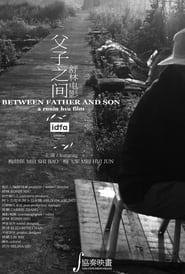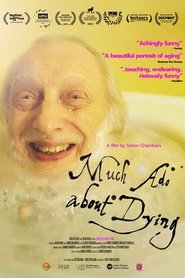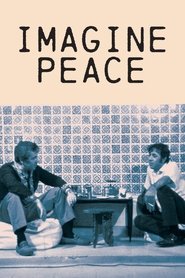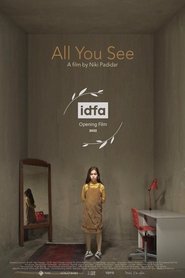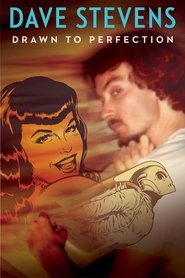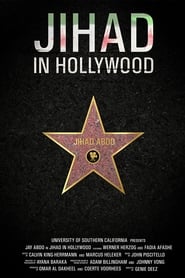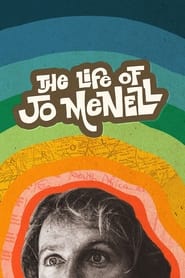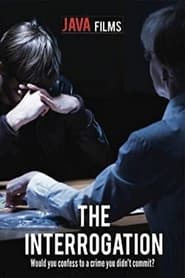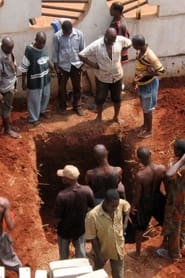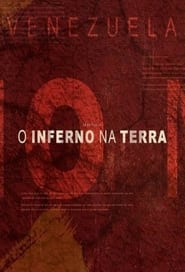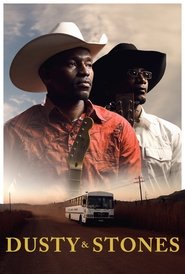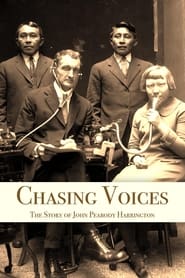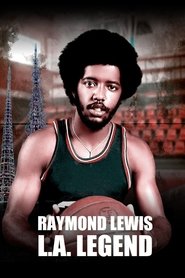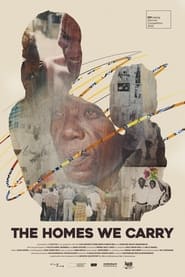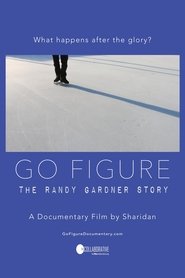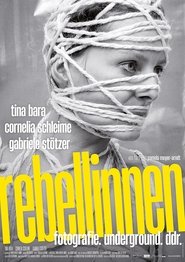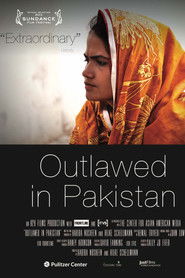Top Rated Documentary Movies on Kanopy - Page 230
-
Between Father and Son
2022
This portrait of a Chinese family centers on the paterfamilias, who at the age of 85 still works his land by hand every day, his wife, who feeds and slaughters the chickens, and one of their sons, who lives in an apartment in the city and spends his days keeping company with his television and a steady flow of alcohol. -
A Star Without a Star: The Untold Juanita Moore Story
2022
A group of unknowns noticed that a legendary actress had no star on Hollywood's Walk of Fame. -
Much Ado About Dying
2024
Much Ado About Dying
2024
Simon Chambers is shooting a film in India when his uncle David calls him with a message of doom: “I think I may be dying.” What the viewer doesn’t yet know is that David, an eccentric gay actor, is a total drama queen, and a Shakespeare-lover who has grown old on a diet of attention and applause. Chambers returns to London to look after his uncle and capture his final stages of life on camera. -
Imagine Peace
2019
Imagine Peace
2019
Almost 50 years after Lionel Rogosin made Arab-Israeli Dialogue, his son revisits the same topic. Following his father’s footsteps, his first journey leads to friends and co-workers of the participants in this unusual shooting. His second journey guides him to places where the historical and contemporary disputes, discussed in the film, took place. Here the director tries to document the development of the complex situation since Amos Kenan’s and Rashed Hussein’s discussion in New York, and find out if their bold words about peace and friendship between the two nations sharing one state became the reality. -
All You See
2022
All You See
2022
What if from one day to the next, you’re no longer seen, but instead are stared at? The leading characters in this multi-layered film have ended up in a new world where suddenly nothing seems to align. In their new lives in the Netherlands, they unintentionally provoke reactions on a daily basis. Even after many years, they still hear the same questions over and over again: where are you from, do you speak Dutch, do you tan in the sun? -
Dave Stevens: Drawn to Perfection
2022
Dave Stevens created The Rocketeer and reintroduced the world to 50's pin-up model Bettie Page. While carving out his own unique corner of importance in comic book and illustration art, Dave showed the world what it's like to pursue the life of a creative individual. -
Jihad in Hollywood
2016
Jihad in Hollywood
2016
Once a successful Syrian actor, Jihad Abdo is now struggling as a refugee while trying to reinvent his life and rebuild his career. -
The Life of Jo Menell: Americans, Mongrels, & Funky Junkies
2019
South African filmmaker Jo Menell is most well-known for the cult feminist classic, Dick (1989), which featured 1000 penises accompanied by an audio commentary from women. The nature of that film, however, belies a rich career in film and journalism that spans the Vietnam War, the Allende government in Chile, the emergence of gay rights in San Francisco, a 1981 Bob Marley documentary, an Oscar nominated film about Nelson Mandela (1997), and the Street Talk television series, as well as close relationships with key figures from the 20th Century. Born into a life of privilege, Menell had progressive political inclinations and soon left apartheid South Africa for Britain where he was schooled in the ways and connections of the British ruling class. The film chronicles his amazingly rich and varied life using archival footage alongside a series of interviews conducted with Menell while his portrait was being painted by Cape Town artist Beezy Bailey. -
The Interrogation
2018
The Interrogation
2018
In America, nearly 30% of those exonerated by DNA tests had previously confessed. For more than half a century, the Reid technique was the favored method of extracting confessions out of suspects. This method of slowly building pressure often made it seem that admitting guilt was the easiest way out. But now, a number of police forces are abandoning the Reid technique because of the risk of generating false confessions. We hear from the men and women who have spent more than 20 years in prison for crimes they did not commit. They tell us about that moment when, in the darkness of the interrogation room, cut off from the world and terrified by police officers, they finally said what the interrogators wanted to hear…the moment their lives changed forever. -
Sweet Sorghum
1978
Sweet Sorghum
1978
In Sweet Sorghum we are introduced to the filmmaker's daughter, Rosie, (now in her early twenties) as she reflects on her childhood spent among the Hamar herdsmen, an isolated people of southwestern Ethiopia. The film reveals the intimacy of shared family life and childhood relationships between the Hamar, Rosie and her brother. We learn about the important role sorghum plays in the Hamar diet, how the sorghum is harvested and the different ways it can be prepared. The practicality of the design of cooking utensils is shown. -
Glorious Exit
2007
Glorious Exit
2007
Jarreth Merz, an actor of Swiss and Nigerian origins living in Los Angeles, ends up facing his roots when he is been told that his father is dead. Following the Nigerian tradition, in fact, the eldest son has to take care of the funeral of his father. But who is this unknown father? Why does Jarreth feel a moral obligation towards a family he hardly knows and who has never really been interested in him? Jarreth begins a journey to discover his father through the tales of the people who knew him and a country that doesn’t belong to him even if it is part of his life. Confronting himself with traditions that challenge his beliefs, from Los Angeles to Nigeria Jarreth will face this decisive chapter of his life and the changes that will follow. -
Dusty & Stones
2022
Dusty & Stones
2022
Dusty and Stones struggle to sustain a country music career in their tiny African Kingdom of Swaziland and yearn for greater recognition. When they are unexpectedly nominated to compete in a Texas battle of the bands, the two cousins journey to the heart of American country music, determined to win big and turn their careers around. -
Chasing Voices: The Story of John Peabody Harrington
2021
For 50 years, controversial ethnographer John Peabody Harrington crisscrossed the United States, frantically searching and documenting dying Native American languages. Harrington amassed over a million pages of notes on over 150 different tribal languages. Some of these languages were considered dead until his notes were discovered. Today tribes are accessing the notes, reviving their once dormant languages, and bringing together a new generation of language learners in the hope of saving Native languages. -
Raymond Lewis: L.A. Legend
2022
A critically acclaimed documentary that tells the incredible story of a basketball phenom from Watts, California whom many believe was blackballed from the NBA in the’70s – and his unlikely and heartbreaking journey in becoming a hoops legend. -
The Homes We Carry
2022
The Homes We Carry
2022
Hammer and compass in Mozambique. We see a GDR flag waved at a rally in Maputo, carried by "Madgermanes", contract workers who once toiled in eastern Germany. Some of them founded families there, like Eulidio. His daughter Sarah grows up with her mother in Berlin. The relationship with her "second home" is slow in growing, partly thanks to Luana, Sarah's baby, whose father, Eduardo is also from Mozambique. -
Go Figure
2020
Go Figure
2020
Two-time Olympian and World Champion, the legendary Randy Gardner, explores his true identity through figure skating and his one man show. With his skating partner of over fifty years, Tai Babilonia, the pair experienced the heights of worldwide glory and devastating personal tragedy. Now that the intense glare of the public spotlight softens, he is free to finally reveal his untold magical and meaningful journey... on and off the ice. -
Rebels
2022
Rebels
2022
The rough, unkempt facades in Prenzlauer Berg – as if the skin had been peeled off the houses, says photographer Tina Bara. Having grown up in a prefabricated building, the young woman was drawn to East Berlin. She quickly got in conflict with the state, just like the artists Cornelia Schleime and Gabriele Stötzer, whom director Pamela Meyer-Arndt questions in her film about memories, traumas and creative genesis. -
Outlawed in Pakistan
2013
Outlawed in Pakistan
2013
Outlawed in Pakistan tells the story of Kainat Soomro as she takes her rape case to Pakistan's deeply flawed court system in hopes of getting justice. The 13-year-old Kainat accuses four men of gang rape and shortly after is ordered to be killed by her village elders. Spanning over five years, the story is told through the perspective of Kainat and the four men accused of her rape. -
Aamakaar
2002
Aamakaar
2002
Aamakaar tells the story of preservation. This film depicts the struggles of a small fisihing village in North Kerala that is fighting the assault on its estuary by sand mining. The villagers are also engaged in the conservation of Olive Ridley turtles that have come to their beach to nest. They make a connection between a species fast becoming extinct and the fate of a community that could face displacement.
 Netflix
Netflix
 Amazon Prime Video
Amazon Prime Video
 Apple iTunes
Apple iTunes
 Apple TV Plus
Apple TV Plus
 Disney Plus
Disney Plus
 Google Play Movies
Google Play Movies
 Paramount Plus
Paramount Plus
 Hulu
Hulu
 HBO Max
HBO Max
 YouTube
YouTube
 fuboTV
fuboTV
 Peacock
Peacock
 Peacock Premium
Peacock Premium
 Amazon Video
Amazon Video
 The Roku Channel
The Roku Channel
 AMC+
AMC+
 Kocowa
Kocowa
 Hoopla
Hoopla
 The CW
The CW
 Vudu
Vudu
 Starz
Starz
 Showtime
Showtime
 PBS
PBS
 Pantaflix
Pantaflix
 FXNow
FXNow
 Tubi TV
Tubi TV
 Kanopy
Kanopy
 Comedy Central
Comedy Central
 Crunchyroll
Crunchyroll
 Microsoft Store
Microsoft Store
 Redbox
Redbox
 Sun Nxt
Sun Nxt
 ABC
ABC
 DIRECTV
DIRECTV
 Crackle
Crackle
 Fandor
Fandor
 Plex
Plex
